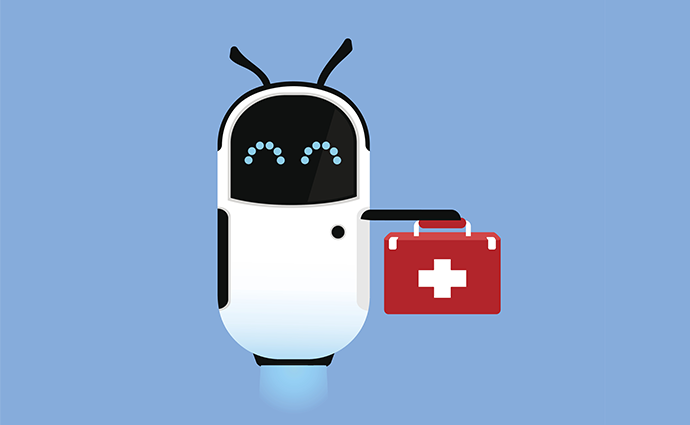Rady, Deloitte Eye Drones as an mHealth Platform for Genomic Tests
The Rady Children's Institute for Genomic Medicine is studying whether an mHealth platform that uses drones can speed up important genomic tests and improve clinical outcomes for seriously ill children.

Source: ThinkStock
- A San Diego-based children’s hospital is exploring a novel mHealth platform to speed up testing services and improve clinical care for seriously ill children.
The Rady Children’s Institute for Genomic Medicine (RCIGM) is partnering with Deloitte to study the use of unmanned aircraft systems (UAS) – otherwise known as drones – to fly genomic testing specimens back and forth from the lab. The mHealth service would not only speed up care by avoiding traffic issues, but could open the door to more services delivered by drone.
“This technology opens many possibilities for providing faster diagnosis for a variety of needs. Coupling rapid sequencing tests with rapid sample transport will speed the time to precise treatment and reduce the period of uncertainty both for providers and the parents of our patients,” Stephen Kingsmore, the hospital’s president and CEO, said in a press release. “More babies’ and children’s lives can be saved – this what drives us.”
“Through our work with RCIGM, we’ve seen firsthand their intense passion for helping children with rare disease, and their dedication to discovering advancements to improve patient care,” added Josh Nelson, a principal at Deloitte Consulting who leads the agency’s work with RCIGM. “This UAS project is an innovation to speed transport and delivery of samples to their lab. Together with RCIGM, we plan to go from strategy to testing to operational and develop a blueprint for other health care organizations to use.”
Hospitals and health systems envision drones as a cheaper and quicker means of transporting medical supplies across distances – including instances where supplies need to reach a remote location.
That’s the thinking of shipping giant UPS, which announced partnerships last year with North Carolina’s WakeMed Health & Hospitals, University of Utah Health and Kaiser Permanente to use drones as healthcare delivery vehicles.
“Drone transport will improve speed of deliveries at a lower cost, enhance access to care and create healthier communities,” Donald Gintzig, WakeMed’s president and CEO, said when the partnership was announced in March. “WakeMed is committed to innovation, and we believe drone technology has the potential to achieve transformative improvements in health and healthcare delivery.”
At RCIGM, hospital officials use rapid whole genome sequencing to diagnose newborns and children with life-threatening rare genetic disease. Their idea is to use drones to speed up that process, enabling care teams to identify and treat those children more quickly.
“We are excited about the potential this innovative technology offers to improve healthcare outcomes for critically sick babies,” Kingsmore said. “By rapidly decoding a child’s DNA, we can provide medical teams with vital information to guide personalize patient care. When minutes matter, we can’t afford to have a sample delayed in transit.”
The hospital and Deloitte are working on funding and testing for the new platform, and will need to coordinate the program with the Federal Aviation Administration.
